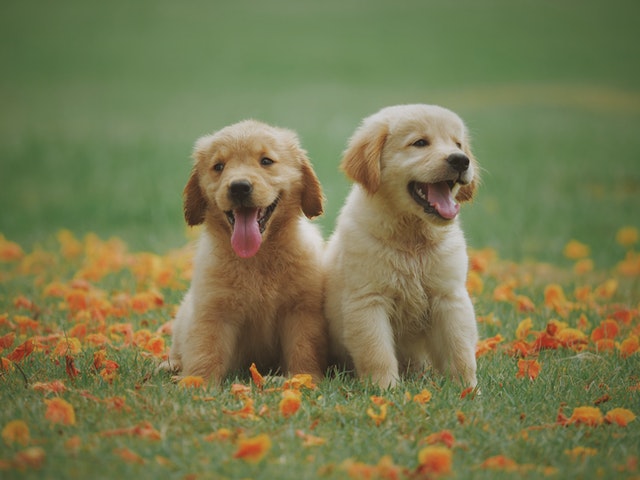KEEP YOUR “PUPPY” IN YOUR PUPPY
Before we get into the details of training and discipline, let’s take some time out to talk about fun and play in your puppy’s daily life. Goldens, like all canines, thrive on interaction and play with their masters (and other dogs). Playing with your Golden Retriever puppy can help burn off some of his gundog fuel. It also helps to keep the dog focused. It is almost impossible to train a hyper or wound-up Golden Retriever. A playdeprived Golden can also become destructive when he attempts to get rid of his excess energy.
You should outline a schedule for your Golden puppy that includes safe dog exercises and canine-human games. The Golden does not have the name “retriever”. Puppy catch is a great method of keeping the Golden busy. He will happily fetch a ball or flying disc for hours if he has the time. Because it can instill the idea that it is okay for the Golden to run away from his master, games of chasing are not recommended by the author. Tuggle-of-war, which is a dominance game that can make the puppy believe he is the “top dog,” is also not recommended.
Your Golden will be unhappy and unfocused if you do not allow your Golden to play. Play is a good way to bond with your Golden Retriever.
ROLES IN DISCIPLINE REWARDED AND PUNISHMENT
Order comes from discipline, which is the ability to follow rules. It’s that simple. Chaos reigns supreme in any group society and will eventually lead to its demise. Canines and humans are social animals. They need to be disciplined in order for them to function well. They need to procure food, keep their family safe and provide for their young.
Social animals would die of starvation if they didn’t have discipline in their lives.
Predation and/or extortion by another
stronger animals.
Dogs need to be disciplined in order for them to learn how the pack works (you and your family) and how to act to survive.
Recently, a large American humane society conducted a survey of dog owners to find out how satisfied they were with their relationship with their dogs. People who had trained their dogs were 75% happier with their pets than people who hadn’t. Thorndike’s Theory of Learning was developed by Dr. Edward Thorndike. This theory states that a behavior that produces a pleasant experience tends to be repeated. A behavior that causes an unpleasant event is not likely to be repeated. This theory is the basis of most modern training methods. If you can manipulate your dog to perform a certain behavior and reward him for it, he will likely do it again, because he enjoyed it.
Sometimes, punishment is required. Sometimes, punishment is best when it comes from outside. A child may be told to not touch the stove, as he might get burned. He ignores the instructions and touches it. He is then burned. He now respects the heat from the stove and avoids direct contact. A behavior that causes an unpleasant event is unlikely to be repeated.
The dog that chases the cat in the house is a good example of a dog who learns lessons the hard way. Although he is repeatedly told to stop chasing the cat, he continues to play with the cat. One day, he starts to chase the cat, but then the cat turns around and swipes a claw across his face, leaving him with a painfulgash. The dog stopped chasing after the cat.





